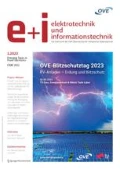Abstract
The most important task for the European transmission system network operations (TSOs) is to ensure the grid security and the non-interruptible electricity supply avoiding blackouts and, at the same time, enabling the electricity trading in the Internal European Electricity Market (IEEM). In framework of TSO Security Cooperation (TSC), whose aim is to enhance the coordination among the participating TSOs, the cost-sharing principle as well as the ex-post concept of remedial actions activation analysis is to be developed. Due to the different reasons it could happen that remedial actions (such as cross-border redispatch and countertrading) are identified as necessary during the different timeframes: from capacity calculation, over the operational planning phase to close-to-real-time operation. Those measures are used for the different purposes, e.g. for guarantying physical firmness of scheduled energy transactions, maintaining the predefined voltage level and/or ensuring system security.
This paper aims to analyse the possible causes of redispatch deployment and to introduce fair cost sharing principles among TSOs for the activation of multilateral remedial actions.




Notes
Measure between non-neighbouring TSOs whose costs are currently paid based on “requester-pays” methodology.
Activation of redispatch measures when energy flows originating in Germany exceed a predetermined threshold. 50 Hertz paid the costs incurred for the application of this method in the pilot phase.
It should be noted that Cause 1 is completely included in the overloaded part of the line and Cause 2 only partially (with 3 MW as a difference between line loading in IDCF and PATL).
In such case only Cause 2 would be considered and costs sharing would be as follows: 50 Hertz (48.5 %), MAVIR (25.5 %), APG (18.4 %), HEP-OPS (4.2 %), Tennet DE (2.6 %), other TSC TSOs (0.8 %).
References
Vukasovic, M., Apostolovic, M. (2009): A line-wise method for the allocation of physical transmission rights and its influence on physical and financial firmness. In 6th international conference on the European electricity market, Belgium.
UCTE (2009): UCTE operational handbook, Appendix 3: Operational security. Final version (approved by SC on 19 March 2009)
BNetzA, URE (2013): Short term approaches to tackle loop flows 50 Hz-PSE Agreement. In 2nd ACER workshop on loop flows, June 2013, Slovenia. A joint presentation of BNetzA und URE
Author information
Authors and Affiliations
Corresponding author
Additional information
Paper submitted for the CIGRE Session 2014, SC C5, Paris, France, August 24–29, 2014.
Rights and permissions
About this article
Cite this article
Vukasovic, M., Vujasinovic, Z. Multilateral remedial actions and the proposal for the cost sharing among European transmission system operators (TSOs): lessons learnt from 25.03.2013 (case study). Elektrotech. Inftech. 131, 366–371 (2014). https://doi.org/10.1007/s00502-014-0235-8
Published:
Issue Date:
DOI: https://doi.org/10.1007/s00502-014-0235-8

